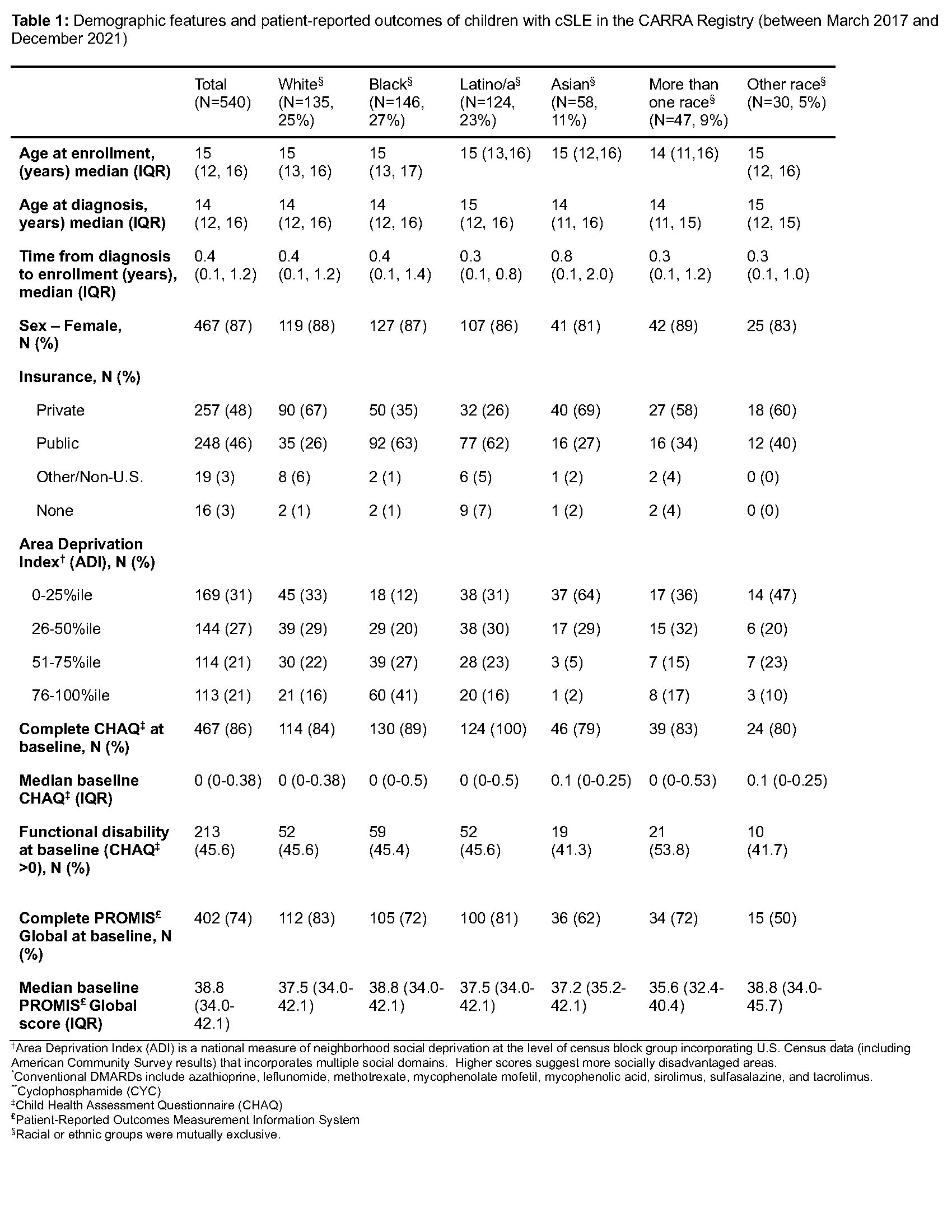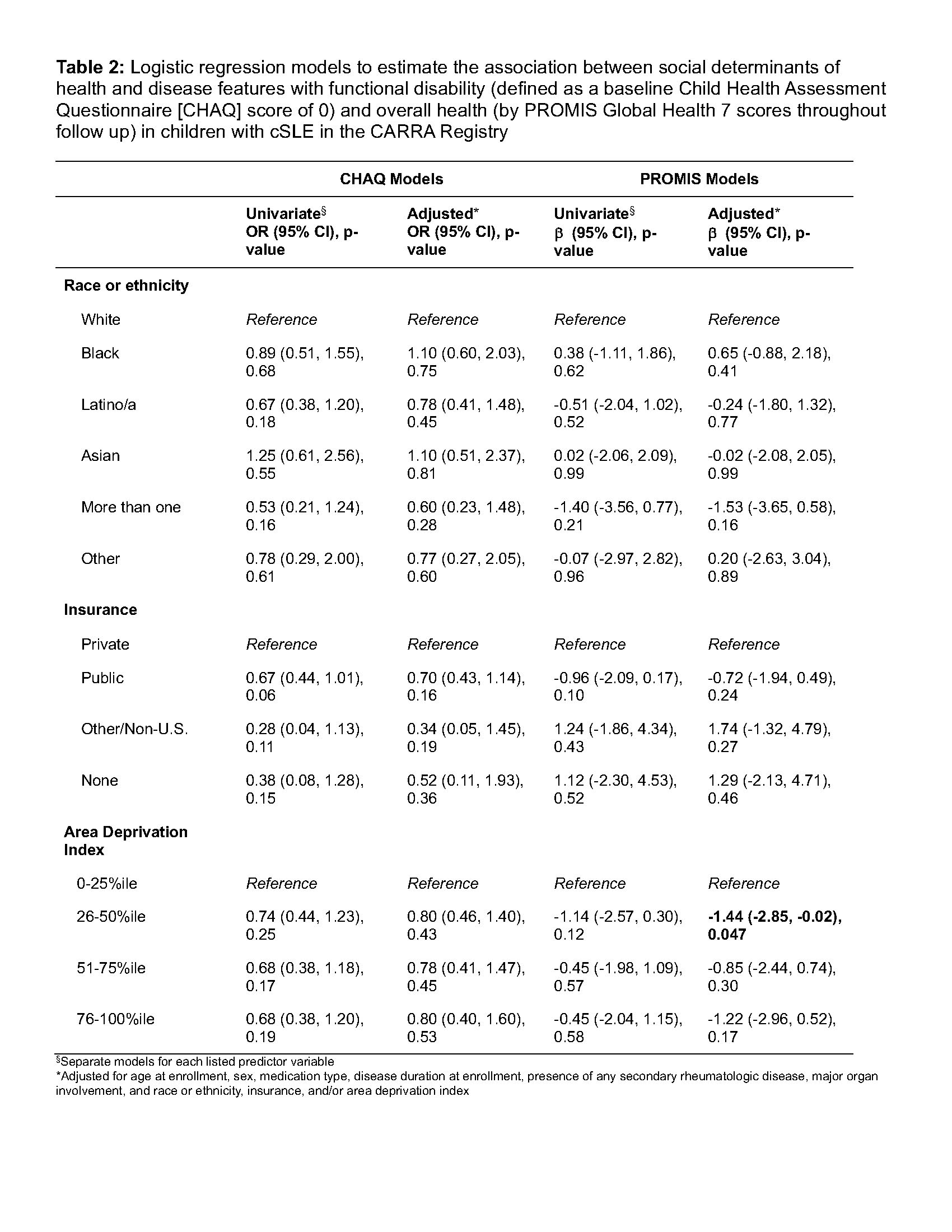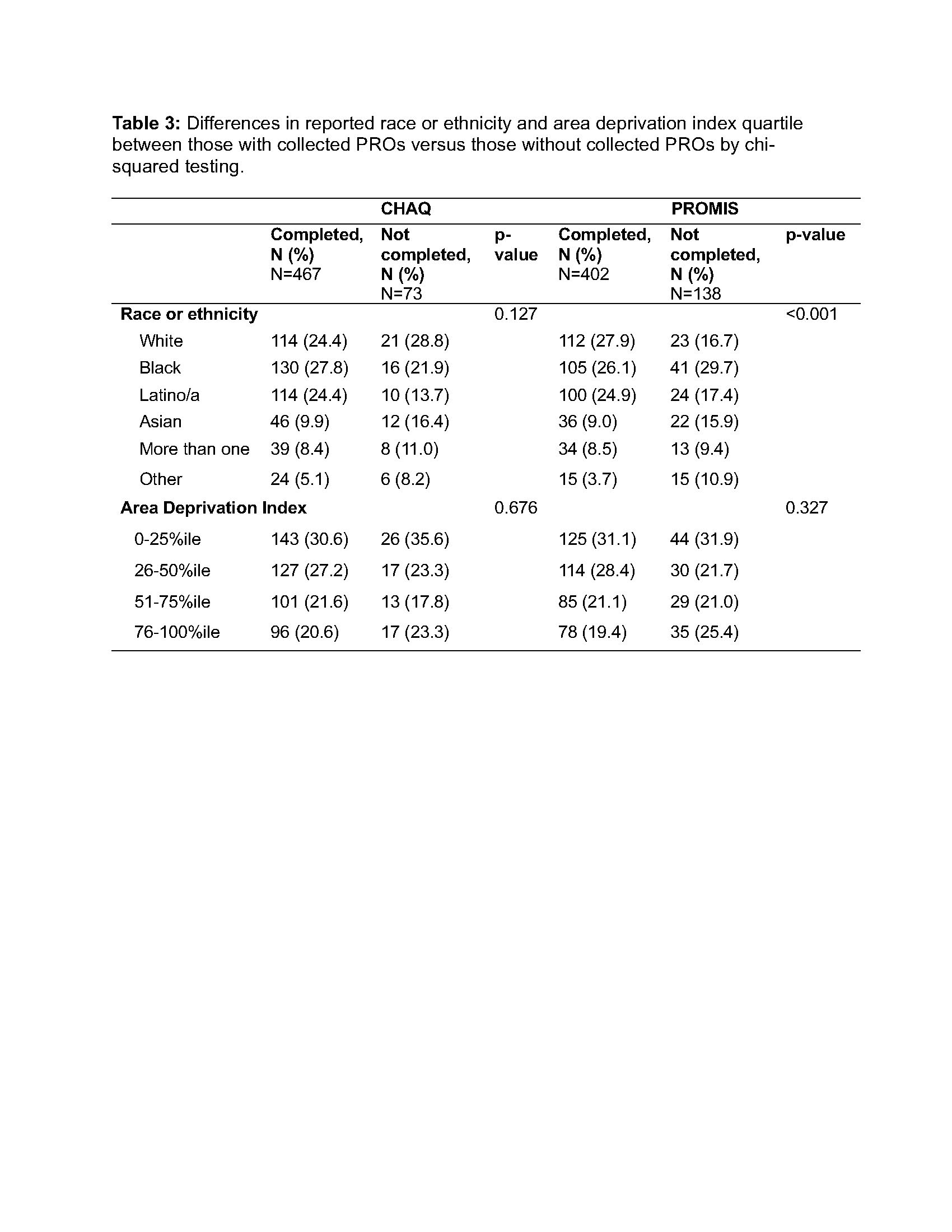Session Information
Session Type: Poster Session B
Session Time: 10:30AM-12:30PM
Background/Purpose: Minoritized race and social determinants of health (SDoH) are associated with lower achievement of the low lupus disease activity state (LLDAS) and higher cumulative prednisone exposure among children with pediatric lupus (pSLE). It is not known if race and SDoH are associated with patient-reported outcomes (PROs). Therefore, we sought to determine how race and SDoH associate with PROs among a cohort with pSLE in the Childhood Arthritis and Rheumatology Research Alliance (CARRA) Registry. We hypothesized that functional disability and worse overall health would be observed among those of minoritized race.
Methods: This cohort study included children with pSLE enrolled in the CARRA Registry during March 2017—December 2021 with baseline and at least one follow-up visit and a valid U.S. ZIP code. The primary exposure was self-identified race or ethnicity. SDoH of interest were insurance status and area deprivation index (ADI). The primary outcomes were 1) any level of functional disability (as defined by a Child Health Assessment Questionnaire [CHAQ] score >0) and 2) overall health (as measured by the PROMIS Global Health-7, with higher scores indicating better health). Associations between race and/or ethnicity and the outcomes were examined using univariate and multivariable linear or logistic regression models, adjusted for covariates (insurance status, ADI, age at enrollment, sex, major organ involvement, medication use, disease duration at enrollment, and secondary rheumatologic disease). A subject-level random effect was included in the PROMIS model to account for repeated measures. Differences in collection of PROs by race and ADI were analyzed by chi-squared testing.
Results: 540 children with pSLE self-identified as 27% Black, 25% White, 23% Latino/a, 11% Asian, 9% more than one race, and 5% Other. Most had CHAQ (86%) and PROMIS Global Health-7 (74%) scores collected. Patient-reported functional disability was common (45.6%) and overall health (median T-score 35.6, IQR 32.4-40.4) was below average (median score T score of 38.8, IQR 34.0-42.1). In both unadjusted and adjusted analyses, neither race, living areas in the highest quartile for ADI, nor insurance status were statistically significantly associated with either outcome (Table 2). There were statistically significant racial differences between those with versus without collected PROMIS measures (p< 0.001, Table 3).
Conclusion: PROs were below average for children with pSLE in the CARRA Registry with nearly half the cohort reporting functional disability and low overall health scores. Race was not a statistically significant predictor of PROs that measure functional disability or overall health, in contrast to our prior work showing racial differences in clinical outcomes, including LLDAS achievement. However, there were statistically significant differences for the collection of PROMIS scores between racial groups, which suggests bias affecting our estimates. Interventions to improve the completeness of data collection among those of minoritized race will be important to future study of racial disparities in pSLE using Registry data.
To cite this abstract in AMA style:
Soulsby W, Olveda R, He J, Berbert L, Weller E, Barbour K, Greenlund K, Schanberg L, Von Scheven E, Hersh A, Son M, Chang J, Knight A. The Impact of Race and Social Determinants of Health on Patient Reported Outcomes in Pediatric Lupus: A CARRA Registry Study [abstract]. Arthritis Rheumatol. 2024; 76 (suppl 9). https://acrabstracts.org/abstract/the-impact-of-race-and-social-determinants-of-health-on-patient-reported-outcomes-in-pediatric-lupus-a-carra-registry-study/. Accessed .« Back to ACR Convergence 2024
ACR Meeting Abstracts - https://acrabstracts.org/abstract/the-impact-of-race-and-social-determinants-of-health-on-patient-reported-outcomes-in-pediatric-lupus-a-carra-registry-study/



